Website optimization is the process of making a website work its best. It’s what keeps people from instantly leaving once they’ve clicked on your page.
Below, we’ll tell you all about what it is, the main parts of it, the benefits, and what’s the best way to do it!
Let’s get started.
Introduction to Website Optimization
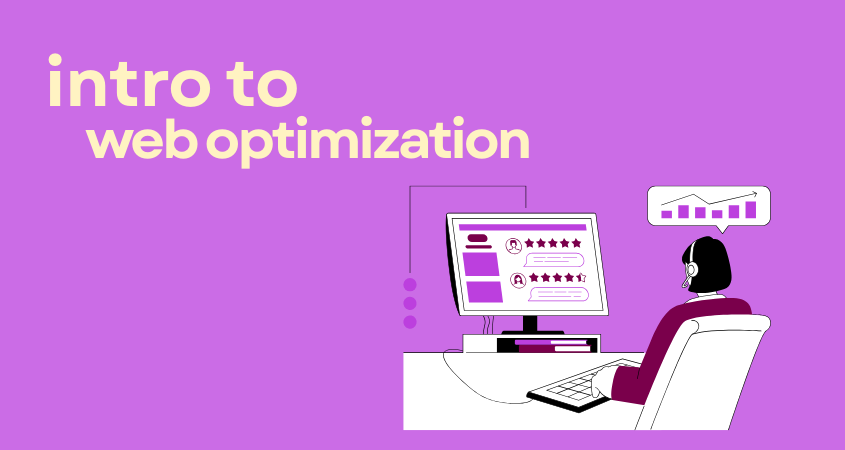
Website optimization focuses on improving the performance of a site to make it faster and easier to navigate.
A lot of technical aspects go into this, such as page load speed, mobile responsiveness, and secure connections (HTTPS), but we’ll talk about those later.
For example, research conducted by Google shows that pages loading in under 3 seconds retain 53% more visitors than those loading slower.
Optimized websites also have the advantage of ranking higher in search results, making them much easier to find.
To make it simple, website optimization combines user experience along with SEO to drive more traffic and engagement to the site.
Aspects of Website Optimization
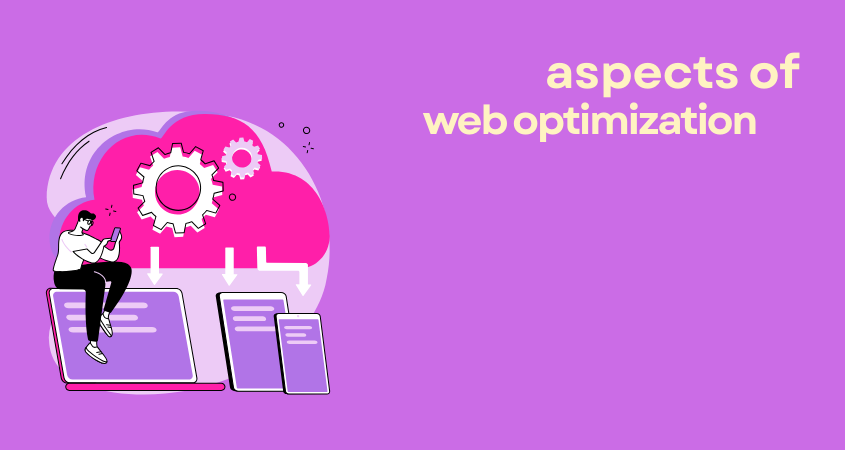
While there are different aspects to it, we narrowed it down to the three main website optimizations.
Functionality
First is functionality.
Functionality refers to how well a site’s features work. This includes links, forms, shopping carts, and other interactive elements.
Having good functionality on your site instantly prevents errors that frustrate users, and with that, reduces conversions.
Site speed optimization also falls into this category. Fast-loading pages are what keep visitors engaged and bounce rates low.
Responsiveness
Responsiveness means the website easily adapts to different screen sizes and devices.
Mobile optimization is critical here, with over 60% of web traffic coming from smartphones and tablets.
A responsive design helps with user experience and also massively increases your chances of ranking higher in search results.
Content
Content is the information your visitors see and interact with that’s all over your site. Clear and organized content helps with UX optimization and keeps users informed.
Having high-quality content with relevant keywords on your website also helps search engines understand your site, which in turn improves your ranking.
Benefits of Site Optimization
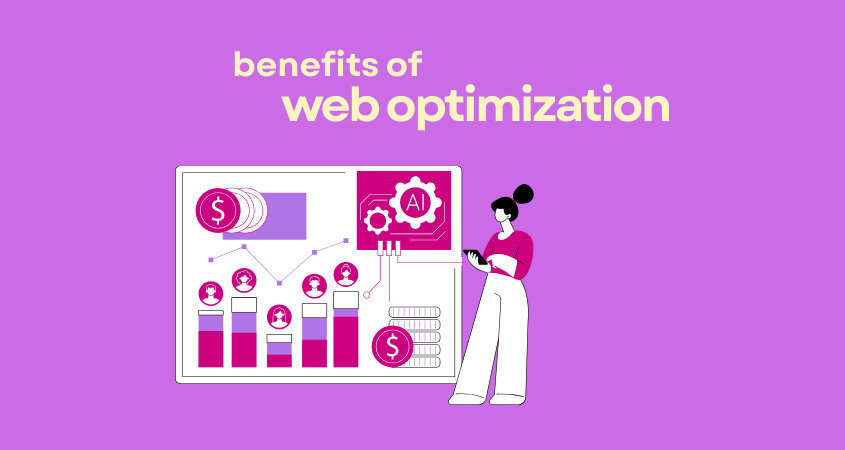
Optimizing your website has advantages for both the users and search engines. Here are just some of them:
- Better Search Rankings: Having an optimized site (especially one with SEO optimization) helps it show up higher on Google. Higher rankings lead to more visitors.
- Faster Load Times: Optimized sites load faster, which reduces bounce rates. Technical SEO practices, like image compression and improving server response, support this.
- Improved User Experience: A well-optimized site is easier to navigate and interact with. It makes visitors want to stay longer and explore more pages.
- Higher Conversion Rates: Optimized websites naturally guide users toward actions like purchases or sign-ups. Clear design and fast performance directly increase conversions.
How to Optimize Your Website?
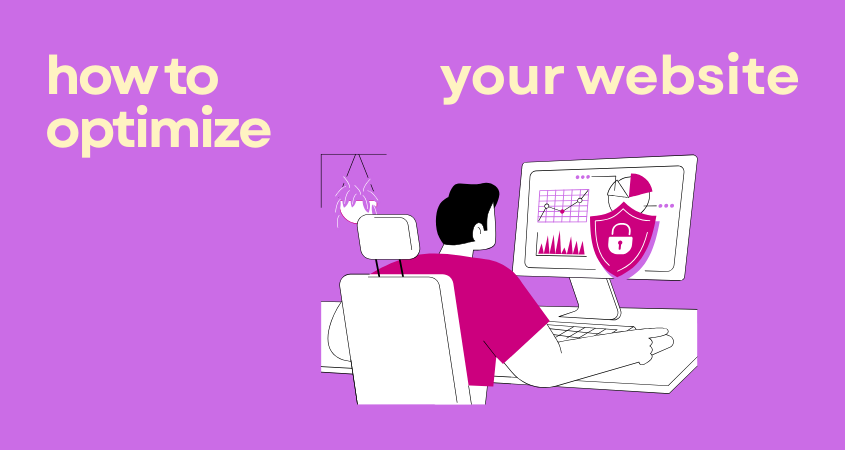
There are a few ways to improve your site, either on your own or with professional help. Choosing the right approach depends on your skills, time, and goals.
Yourself
The first way to do SEO is by yourself. When optimizing your site on your own, you should consider a few things.
1. Improve Page Speed
Start by checking your site’s load times using tools like Google PageSpeed Insights.
Optimizing images, enabling browser caching, and minimizing code can significantly improve site speed.
2. Reduce Technical Issues
Check for broken links, errors, and outdated plugins that can slow down your site. Fixing these issues improves site performance, security, and overall user experience.
3. Optimize Content
Having clear headings, relevant keywords, and structured content makes pages easier to read. Good content improves SEO and helps visitors find what they need quickly.
4. Focus on Core Web Vitals
Core Web Vitals measure user experience factors like loading, interactivity, and visual stability. Improving these metrics helps with your search rankings.
With an Outside Partner
Working with specialists can save you time and guarantee your website performs at its best. If you’re struggling with optimizing your site by yourself, we’re here to help!
At VP Media, we focus on site optimization and SEO in Macedonia to help your site attract more visitors and keep them there.
We also guide you on how to make a website that is fast, user-friendly, and effective for search engines.
If you’re not sure where to start, we offer a free consultation to review your site and create a clear plan for better results.
Final Thoughts
If you want a site that’s fast, easier to use, and more effective at reaching your audience, website optimization is essential.
By focusing on the key areas that we mentioned, you can easily improve user experience and search rankings.
You can try fixing things yourself or get help from experts to make it easier. The important part is to start today.
Trust us, you’re website will thank you, and so will your visitors!
Frequently Asked Questions
How often should I review my website for optimization?
It’s recommended you check your website every 3-6 months.
With these regular reviews, you can spot issues early, such as broken links, slower pages, and outdated content.
Does website optimization affect my website’s security?
Yes, some optimization steps, like updating software, fixing broken plugins, and using HTTPS, also improve security.
Can I optimize my website for free?
Of course!
Many basic improvements, like compressing images, checking broken links, and improving mobile responsiveness, can be done with free tools.
How long does it take to see results from optimization?
Some changes, like improving page speed, show results immediately.
SEO improvements and other optimizations may take a few weeks to a few months to impact traffic and rankings.

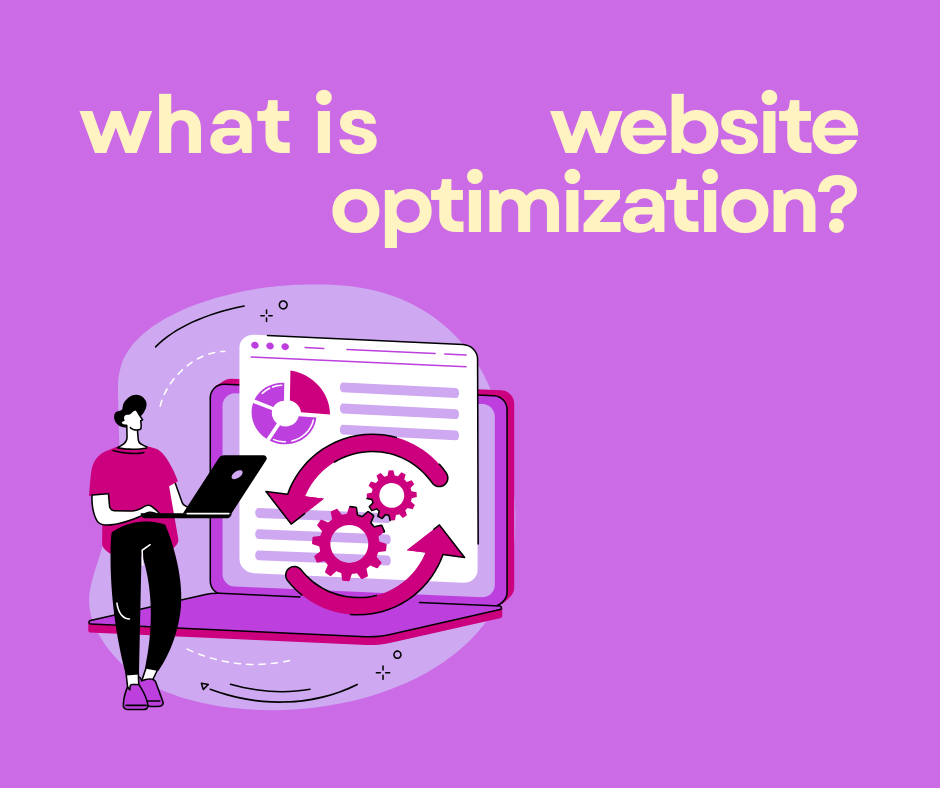
Leave a Reply